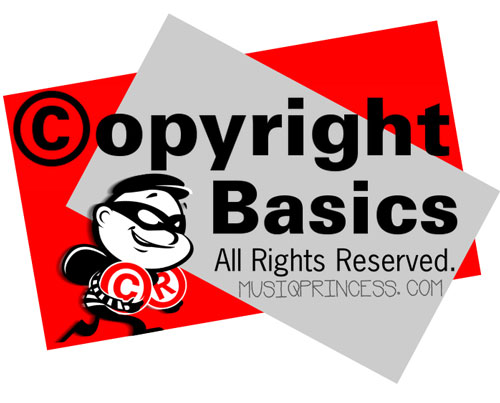 Whether you are a musician, visit singer or songwriter, diagnosis it is important to know the copyright basics. The last thing you want is someone copying your work and you not knowing the dos and dont’s.
Whether you are a musician, visit singer or songwriter, diagnosis it is important to know the copyright basics. The last thing you want is someone copying your work and you not knowing the dos and dont’s.
To help clear any confusion you may have about copyright laws, here’s a basic guide.
The content below was taken from content posted on the U.S. Copyright Office website. The information below is an edited summary. For the unedited version, visit: www.copyright.gov
What Is Copyright?
Copyright is a form of protection by the government to protect original works of authorship fixed in a tangible medium of expression.
This protection applies to both published and unpublished works, regardless of the nationality or place of residence of the author. It is unlawful for anyone to violate any of the rights provided by copyright law to the owner of the copyright.
Who Can Claim Copyright?
Only the author or those deriving their rights through the author can rightfully claim copyright.
What Can Be Copyrighted?
There are several categories that can be copyrighted such as:
- Literary works
- Musical works
- Dramatic works
- Pantomimes and choreographic works
- Pictorial, graphic and sculptural works
- Motion pictures and audiovisual works
- Sound recording
- Architectural works
When Does A Work Become Copyrighted?
The moment you create the work is when it immediately becomes the property of the author who created the work.
Where And How Can A Work Be Copyrighted?
A work must be recorded in some physical form, whether on paper, computer hard drive or other physical medium. An impulsive work like a speech or musicianship that is not recorded, is not protected by copyright. For instance, if you’re performing a live a solo and start to improvise, if it is not recorded it is not protected. However, if you have a recording of your improvisation during your performance then it is and can be protected by copyright.
What Can I Do With My Copyrighted Work?
You are able to:
- Make copies of your work
- Distribute copies of your work
- Perform or display your work publicly
- Create “derivative works” (For instance, when a book is made into a movie)
- Perform sound recordings (digital audio transmission)
What Does Copyright Protect?
Copyright protects original works of the author including musical, literary, dramatic, and artistic works, such as songs, poetry, movies, novels, computer software, and architecture.
What Does Copyright NOT Protect?
- Ideas
- Facts
- Data
- Logos or Taglines
- Anything created by the U.S. Government
How Long Does Copyright Last?
In the United States, works published before 1923 are in the public domain. Works that are considered public domain are not protected by copyright law.
Works published after 1922, but before 1978 are protected for 95 years from the date of publication. If the work was created, but not published, before 1978, the copyright lasts for the life of the author plus 70 years.
What Is Copyright Notice?
The copyright notice was required under the 1976 Copyright Act. However, this requirement was eliminated when the United States adhered to the Berne Convention, effective March 1, 1989.
The use of a copyright notice (© Copyright 2014 EFG.com All Rights Reserved) is no longer required under U.S. law because it is “fixed”. This means that as soon as it is written or recorded in a tangible form, it becomes copyrighted. Use of the notice may be important because it informs the public that the work is protected by copyright, identifies the copyright owner, and shows the year of first publication.
What Is Copyright Registration?
Although you do not need to do anything formal to claim copyright ownership in your work other than to establish that you created the work, it is still important to obtain federal registration of your copyright with the United States Copyright Office.
What Is Copyright Infringement?
Copyright infringement is when someone copies your work and starts selling it for profit. It also applies if someone samples your original work, for instance music, and incorporates it into their own without your permission.





 Whether you are a musician,
Whether you are a musician,